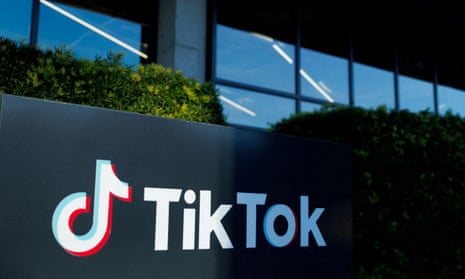ByteDance would prefer to shut down TikTok rather than sell it if the Chinese company exhausts all legal options to fight legislation to ban the platform from app stores in the US, four sources said.
The algorithms TikTok relies on for its operations are deemed core to ByteDance’s overall operations, which would make a sale of the app with algorithms highly unlikely, said the sources close to the parent.
Though TikTok is ultra-popular, boasting more than 1bn users, it still operates at a loss, accounting for a small share of ByteDance’s total revenues and daily active users. The parent company would rather have the app shut down in the US in a worst-case scenario than sell it to a potential American buyer, they said.
A shutdown would have limited impact on ByteDance’s business, while the company would not have to give up its core algorithm, said the sources, who declined to be named as they were not authorised to speak to the media.
ByteDance said late on Thursday in a statement posted on Toutiao, a media platform it owns, that it had no plan to sell TikTok, in response to an article by The Information saying ByteDance is exploring scenarios for selling TikTok’s US business without the algorithm that recommends videos to TikTok users.
In response to a request for comment, a TikTok spokesperson referred to ByteDance’s statement posted on Toutiao.
TikTok’s CEO, Shou Zi Chew, said on Wednesday the social media company expected to win a legal challenge to block legislation signed into law by Joe Biden that he said would ban its popular short video app used by 170 million Americans.
The bill, passed overwhelmingly by the US Senate on Tuesday, is driven by widespread worries among US lawmakers that China could access Americans’ data or use the app for surveillance.
The US president’s signing sets a 19 January deadline for a sale – one day before Biden’s term is poised to expire – but he could extend the deadline by three months if he determines privately owned ByteDance is making progress.
ByteDance does not publicly disclose its financial performance or the financial details of any of its units. The company continues to make most of its money in China, mainly from its other apps such as Douyin, the Chinese equivalent of TikTok, separate sources have said. The US accounted for about 25% of TikTok’s overall revenues last year, said a separate source with direct knowledge.
Reuters interviewed more than half a dozen investment bankers who said it was tough to value how much TikTok is worth compared with like-for-like competitors Meta Platforms’ Facebook and Snap, as TikTok’s financials are not widely available nor easy to access.
ByteDance’s 2023 revenues rose to nearly $120bn in 2023 from $80bn in 2022, said two of the four sources. TikTok’s daily active users in the US also make up just about 5% of ByteDance’s DAUs worldwide, said one of the sources.
TikTok shares the same core algorithms with ByteDance domestic apps such as the short video platform Douyin, three of the sources said. It would be impossible to divest TikTok with its algorithms as their intellectual property license is registered under ByteDance in China and thus difficult to disentangle from the parent company, said the sources.
after newsletter promotion
ByteDance also would not agree to sell one of its most valuable assets – its “secret sauce” – to rivals, said the four sources, referring to the TikTok algorithm. Moreover, separating the algorithms from TikTok’s US assets would be an extremely complicated procedure, and ByteDance is unlikely to consider that option, the sources added. Excluding algorithms, TikTok’s main assets include user data and product operations and management, said two of the people.
In 2020, the Trump administration sought to ban TikTok and Chinese-owned WeChat but was blocked by the courts. The short-form video app has since faced partial and attempted bans in the US and other countries.
China indicated it would be likely to reject a forced divestment of the TikTok app during a US congressional hearing in March last year.
“China will firmly oppose it [the forced sale of TikTok],” said a spokesperson for the ministry of commerce at a news conference in Beijing in late March 2023.
The former US treasury secretary Steven Mnuchin has expressed interest in putting together an investor group to try to buy TikTok. ByteDance may struggle to attract any buyers for TikTok’s US assets excluding algorithms, the sources said.
ByteDance was valued at $268bn in December when it offered to buy back around $5bn worth of shares from investors.
